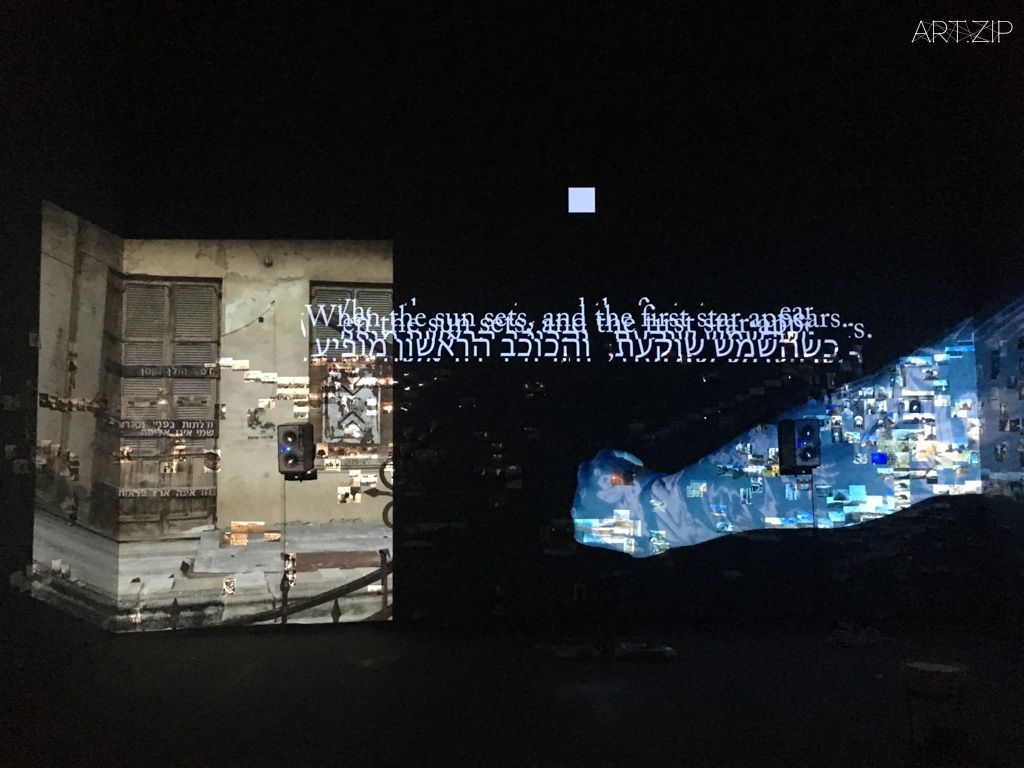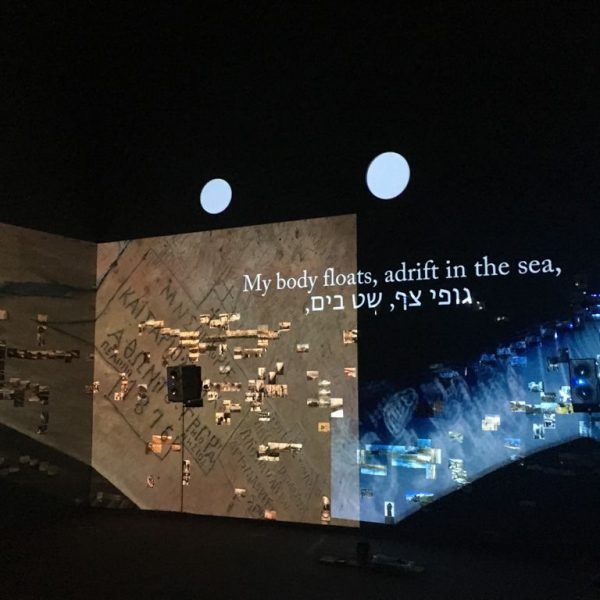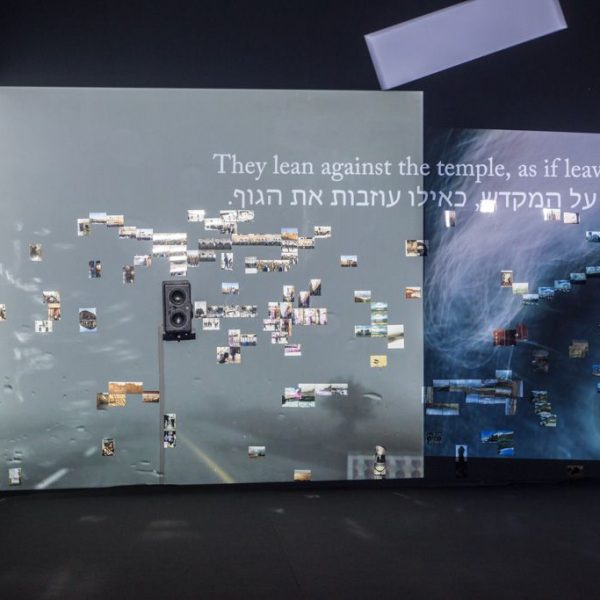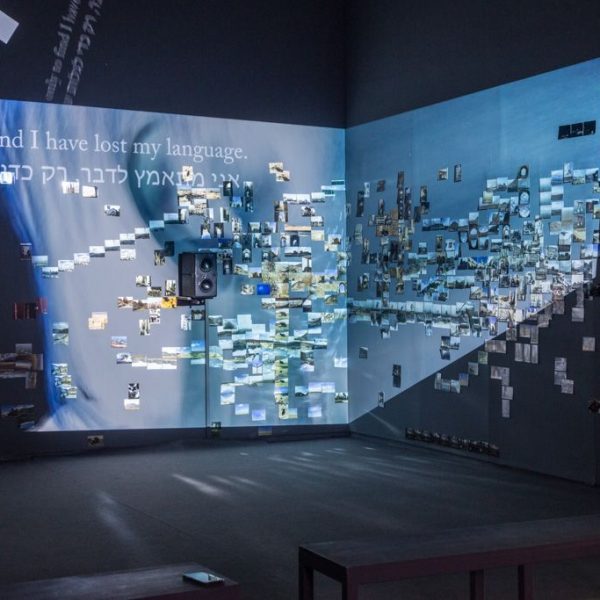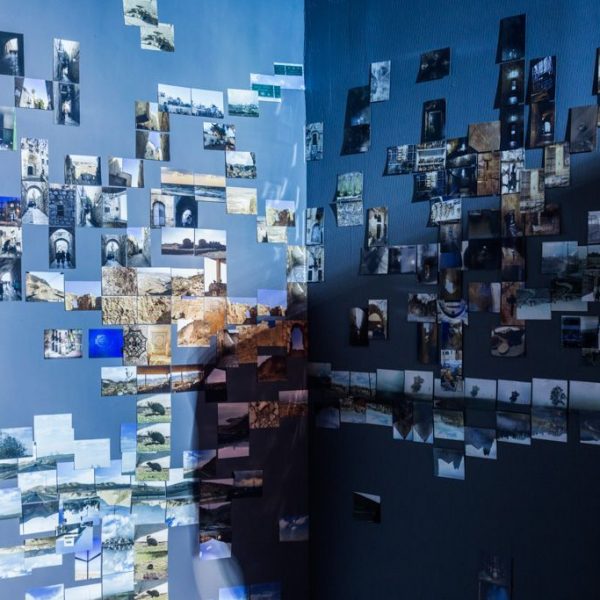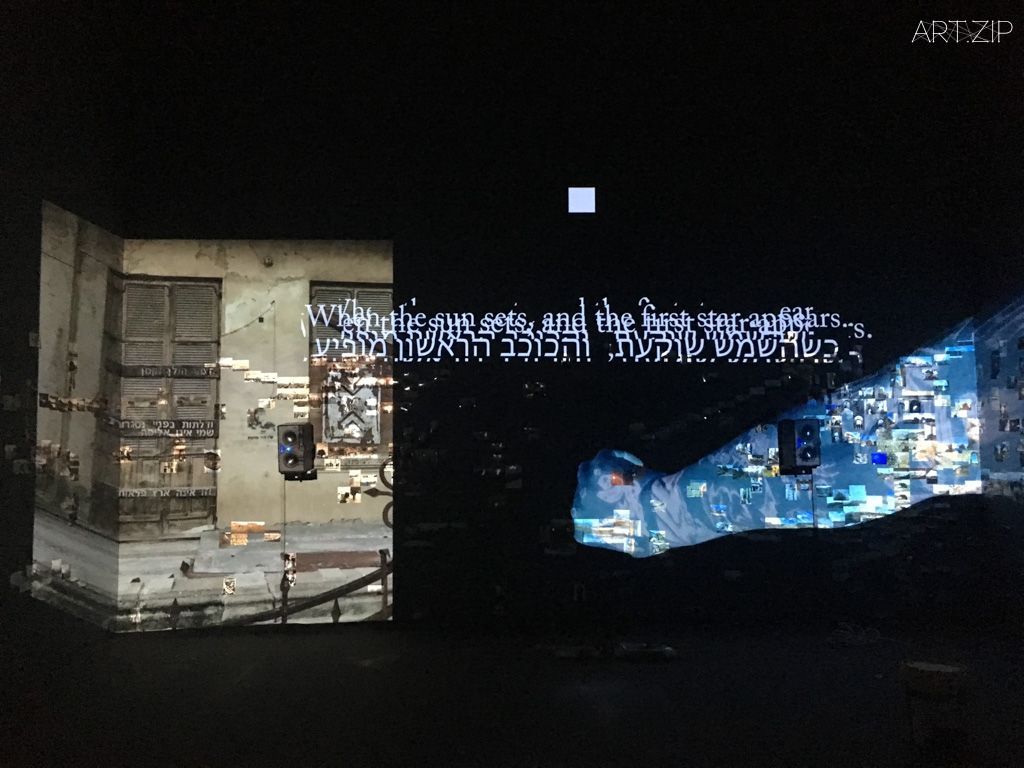
Diary of a Madman: Cheng Ran solo show
19.01.2018 – 17.03.2018
Center for Contemporary Art, Tel Aviv
Curated by Xiaohui Guo & Silia Ka Tung
We have been following Cheng Ran’s trajectory ever since Artzip was introduced to the Israeli painter Gideon Rubin, with whom Cheng was part of a 2016 residency programme organised by Xiaohui Guo. Here at Israeli’s leading institution of experimental art, we are delighted to view Cheng’s latest work ‘Diary of a Madman: Jerusalem‘ – a direct result of his residency in Israel.
The way the exhibition is curated gives a generous and dynamic view of Cheng’s entire trilogy of the ‘Madman’ series. The space was divided into two parts by a viewing bench, on the left we find two small screens playing videos from Cheng’s earlier works in the ‘Diary of a Madman’ series (the ‘New York’ & the ‘Hong Kong’ part), and across the bench on the right there are large overlapping projections on the wall, presenting his Jerusalem work. On the wall where the projection is, the curators hang hundreds of small photos Cheng took in Israel; this creates a complex and intriguing visual pattern. There is no doubt that the curatorial intention is to fuse together all three parts of the trilogy inside one room. As a result, we are presented with this new dimension where ‘Jerusalem’, ‘New York’ and ‘Hong Kong’ collided and mingled.
With echoing sounds and illuminating images, it was somewhat overwhelming to the senses at first. We sat down on the bench, facing the projections, anticipating a new story to be told.
The political tensions regarding the state of Israel have been at the heart of almost every debate in the Middle Eastern conflicting landscape. The issues, frustrations, tensions at hand could at any time amount to an even greater impact on the world; this urgency, however, is less explicit in Cheng’s work. Images and sounds of one projection on the left make up a poetic landscape of Israel: we are acquainted with her quiet streets, rocky mountains, temples, local residents and an anonymous room decorated with traditional wallpaper. The projection on the right tells a different story – silhouetted hands seem to be dancing to a different rhythm. As the hand moves, we also got to see the small photos attached to the wall, forming an illusion that the hand was tattooed or drawn on. The impression is one of a strange kind of beauty; it was heavily laden with layers of signs, words, messages and vision from a wanderer in a foreign land. Cheng’s voiceover as ‘a Chinese sick man’ hovers on top of everything, sometimes clear and sometimes blurred; melancholia and a sense of confusion overrun the whole space. The juxtaposition of Israeli scenes and dancing hands suggests the inner emotional world of the artist, as he mutters ‘I struggle to speak, only to find I have lost my language.’ Why the loss of language? Under what circumstances will someone suddenly lose the ability to speak his mother tongue? To be more specific, this sentence was spoken by the artist in Hebrew, a language he felt at a loss. If we are to assume that a strong part of personal identity comes from the very language we speak, is Cheng trying to suggest a loss of identity and self on our path to ‘advance’ or ‘success’?
We are reminded of a previous meeting with the curator Xiaohui, who organised a residency entitled ‘places of conflicts’. The aim was to bring artists to a place of political tension to experience the changing social and cultural atmosphere and to create new conversations. Xiaohui has been working on these residencies since 2014, following her MA studies at Goldsmith College. The curatorial themes throughout her projects are ones concerning with the relationship of Art & Politics. Thus the very idea of an artist in a strange place of conflict took off and was finally materialised in the forms of residencies in 2016. From our conversations and interviews with Xiaohui Guo we learnt that her background plays a deep influence: she was born in Xinjiang, China, a Muslim majority province with increasing political tensions. Her roots and her interest in the political art gave her a sharp and alerted view towards contemporary art’s disposition.
Cheng composed a poem after his time in Jerusalem, to express our grasp of this exhibition we feel it is most apt in quoting a few lines from the poem:
“Cosmos loses her gravity in the Dead Sea
Change seems remote, the present clinging onto the eternal
Till sundown, till the first star appears, and we stroll on earth
no wheels and no hair touching cheeks
hear the raindrops on Golan Heights, obscuring my vision of Syrian flames” Cheng Ran, Jerusalem, 2017
Text by: Qiwen Ke
Edited by: Xiao-yang Li


